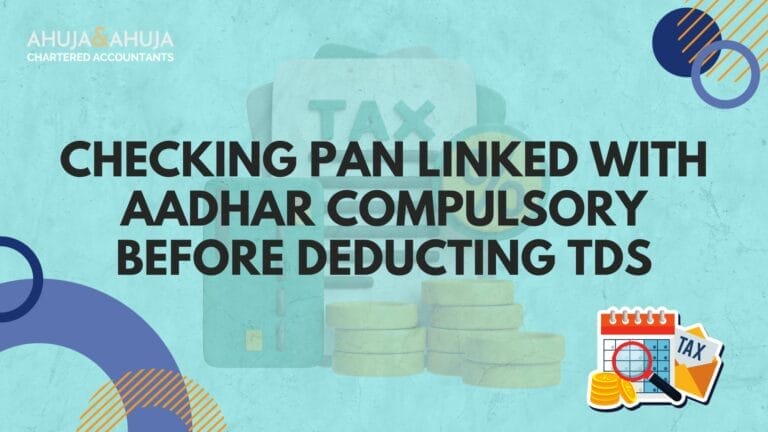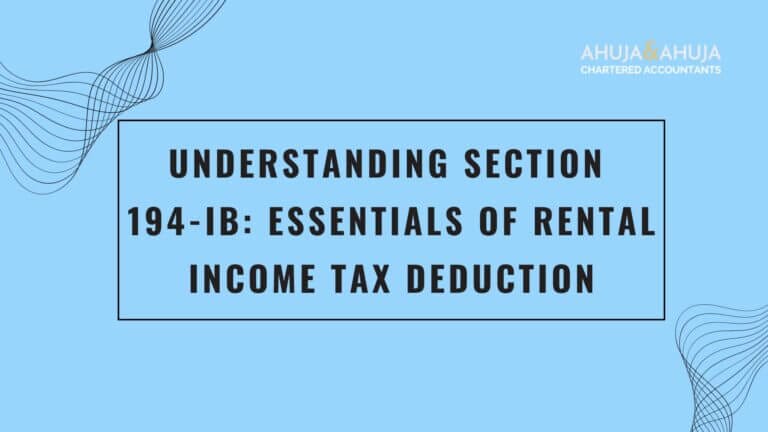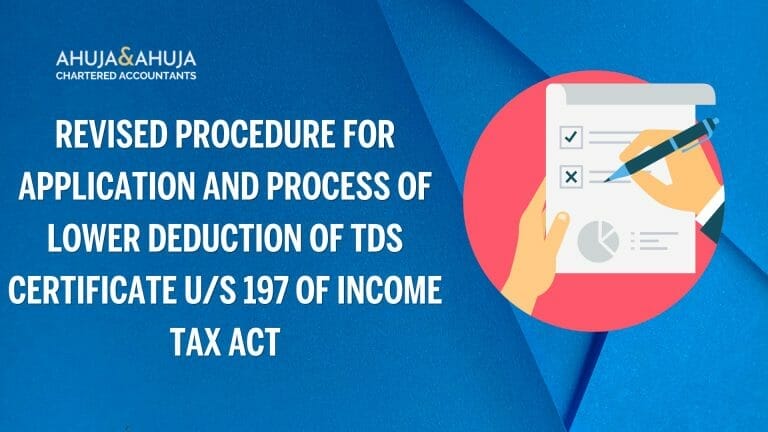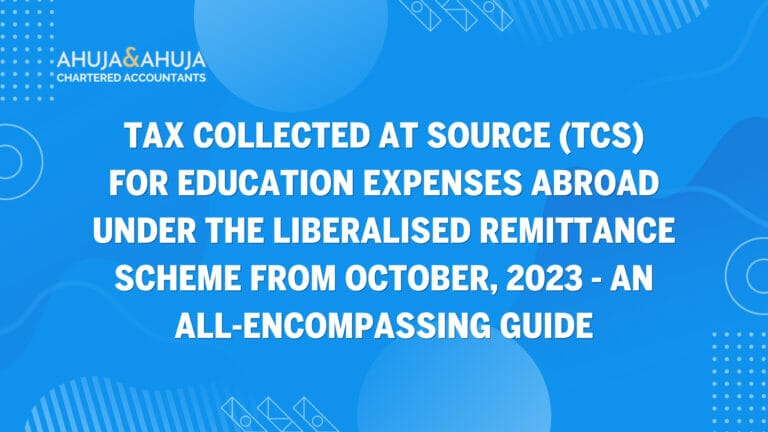Difference Between TDS and TCS Explained
The Indian tax system is meticulously designed to ensure effective tax collection. Two fundamental mechanisms contributing to this system are TDS (Tax Deducted at Source) and TCS (Tax Collected at Source).
Though they share similar objectives—minimizing tax evasion—they vary in their application and operations. This article aims to elucidate these concepts, shedding light on their unique characteristics and their relevance in the broader financial landscape.
What is TDS (Tax Deducted at Source)?
TDS is a proactive approach to tax collection initiated at the source of revenue generation. The premise lies in the deduction of tax by the payer, referred to as the “deductor,” prior to making the payment to the payee, also known as the “deductee.”
The deductor, guided by their PAN (Permanent Account Number), is obligated to deduct TDS if the sum being paid exceeds a certain limit. This tax can be levied on several sources of income, including salary, interest from fixed deposits, rent, commission, professional fees, and other non-exempt sources.
Preserving the objective of limiting tax evasion, TDS instills a sense of responsibility in both the deductor and the deductee to adhere to their tax obligations. The deducted amount, remitted to the government by the deductor, eventually adjusts against the deductee’s total tax liability, thus integrating a seamless collection mechanism.
What is TCS (Tax Collected at Source)?
While deductors shoulder the duty of tax deduction in TDS, TCS shifts this obligation to the seller of specific goods. The seller, under Section 206C of the Income Tax Act, is entrusted with the responsibility of collecting tax on these goods sold to the buyer. The collected sum is then remitted to the government.
Unlike TDS, TCS doesn’t delineate income types; instead, it focuses on specific products as designated under the Income Tax Act. Sellers mandated to collect TCS must possess a Tax Collection Account Number (TCA), facilitating an efficiently enforced tax collection system.
In the upcoming sections, we will explore the differences and similarities between TDS and TCS, the consequences of non-compliance, and their role in the GST regime.
Key Differences Between TDS and TCS
Understanding the differences between TDS and TCS is crucial for compliance. Let us dive into a comparative analysis:
- Nature of Collection:
- TDS: Deducted at the source from various income sources such as salary, interest, rent, etc.
- TCS: Collected by the seller from the buyer on the sale of certain goods.
- Applicability:
- TDS: Applicable across a broader range of income streams.
- TCS: Applicable only to specified transactions involving specified goods such as scrap, minerals, or during specific circumstances such as educational expenses abroad (TCS on education expenses abroad).
- Penalties for Non-compliance:
- TDS: Late or non-deduction can attract fines and interest.
- TCS: Non-collection or late payment leads to penalties.
Tabular Comparison:
| Parameter | TDS | TCS |
|---|---|---|
| Full Form | Tax Deducted at Source | Tax Collected at Source |
| Nature | Tax deducted when making payment to the receiver | Tax collected by the seller from the buyer at the point of sale |
| Applicability | Salaries, interest, rent, fees, commissions, etc. | Sale of certain goods defined by the Income Tax Act |
| Collected By | Payer of the Income | Seller of the goods |
| Paid By | Deductee (receiver of income) through deduction | Buyer of the goods through collection by the seller |
TDS and TCS in the Context of GST
The Goods and Services Tax (GST) introduced some nuances to both TDS and TCS. Under GST, a notable difference arises:
- TDS under GST: It is deducted by the buyer when making payment to the contractor for the supply of services or goods.
- TCS under GST: In ecommerce, platforms like Amazon or Flipkart collect a percentage of TCS on the transaction value from the sellers using their platform to remit to the government (TCS in ecommerce).
The obligation for checking PAN linkage with Aadhaar is vital before deducting TDS, ensuring that tax credits are properly recorded and managed.
Consequences of Non-compliance
Both TDS and TCS are ingrained with strict regulations and compliance procedures which, if not adhered to, can result in significant penalties.
Penalties for TDS:
- Non-deduction or delay in TDS payment can lead to an interest charge of 1.5% per month from the date the tax was deductible to the date the tax is actually deducted.
- After deduction, if the tax is not paid to the government by the required date, the same interest rate applies until the due tax is paid.
- A penalty ranging from INR 10,000 to INR 1,00,000 may be levied for not filing the TDS return or for incorrect details in the return.
- Additionally, the deductor is obligated to issue a TDS certificate as proof of collection. Failure to provide this document can lead to a fine.
- Acquiring a Lower Deduction Certificate (LDC) can provide relief from high tax deduction, especially in cases where income is below taxable limits or when an NRI sells property.
Penalties for TCS:
- Collectors who do not collect the tax or fail to deposit collected TCS face not only the simple interest charges but also penalties equal to the amount of tax that could not be collected or paid.
- Failure to file the TCS return or filing with incorrect details similarly leads to hefty fines.
Both TDS and TCS regulations emphasize punctuality and accuracy in tax dealings. It is imperative for businesses and individuals engaged in transactions subject to these tax provisions to maintain scrupulous records and take diligent action to avoid any forms of non-compliance.
By understanding and observing the principles of TDS and TCS, taxpayers can ensure they remain in the good graces of the tax authorities.
For comprehensive guidance on these matters, one might consider professional outsourcing services, such as those offered by Ahuja & Ahuja, to navigate the complexities of TDS/TCS return filings.
Key Takeaways
In conclusion, it’s essential to recognize that both TDS and TCS serve as principal mechanisms of tax collection in India, each playing a pivotal role in the government’s revenue stream.
While TDS ensures that tax is collected upfront on various incomes paid, TCS targets the sale of specific goods, placing the onus on the seller to collect the tax from the buyer.
Understanding the nuances, applicability, and procedures for both TDS and TCS is fundamental for individuals and businesses to remain compliant with tax laws.
The forethought in tax planning, adherence to the reporting deadlines, and accuracy in payments and collections can go a long way in avoiding the severe penalties associated with non-compliance.
For any specific queries or assistance regarding TDS and TCS, including filings and adherence to regulations like obtaining lower deduction certificates or managing returns, partnering with seasoned tax professionals can provide invaluable support.
Frequently Asked Questions (FAQs)
Who is required to deduct TDS?
Any individual or company making a specified payment as per Income Tax Act is required to deduct TDS at the time of making such payment.
Can TDS be applicable to individual taxpayers?
Yes, individuals who own a business or profession are required to deduct TDS when making certain payments like salary, rent, etc., if their turnover exceeds the tax audit threshold.
When is TCS applicable?
TCS is applicable at the time of selling certain goods like tendu leaves, scrap, etc., and also on the sale of cars exceeding a certain value, and other goods specified under the Income Tax Act.
Is compliance with TDS and TCS mandatory?
Yes, compliance with TDS and TCS provisions is compulsory under the Income Tax Act, and non-adherence can result in penalties and interest charges.
How can I verify whether my PAN is linked with Aadhaar?
Verification can be done online through the Income Tax Department’s e-filing portal, and linking is necessary to prevent issues with TDS and tax credits (verifying PAN-Aadhaar linkage).
With the right approach and guidance, TDS and TCS need not be contentious issues but rather integral elements of a successful tax strategy. Remember, staying informed and proactive is key to ensuring seamless tax compliance.
Disclaimer
The materials provided herein are solely for educational and informational purposes. No attorney/professional-client relationship is created when you access or use the site or the materials. The information presented on this site does not constitute legal or professional advice and should not be relied upon for such purposes or used as a substitute for professional or legal advice.






